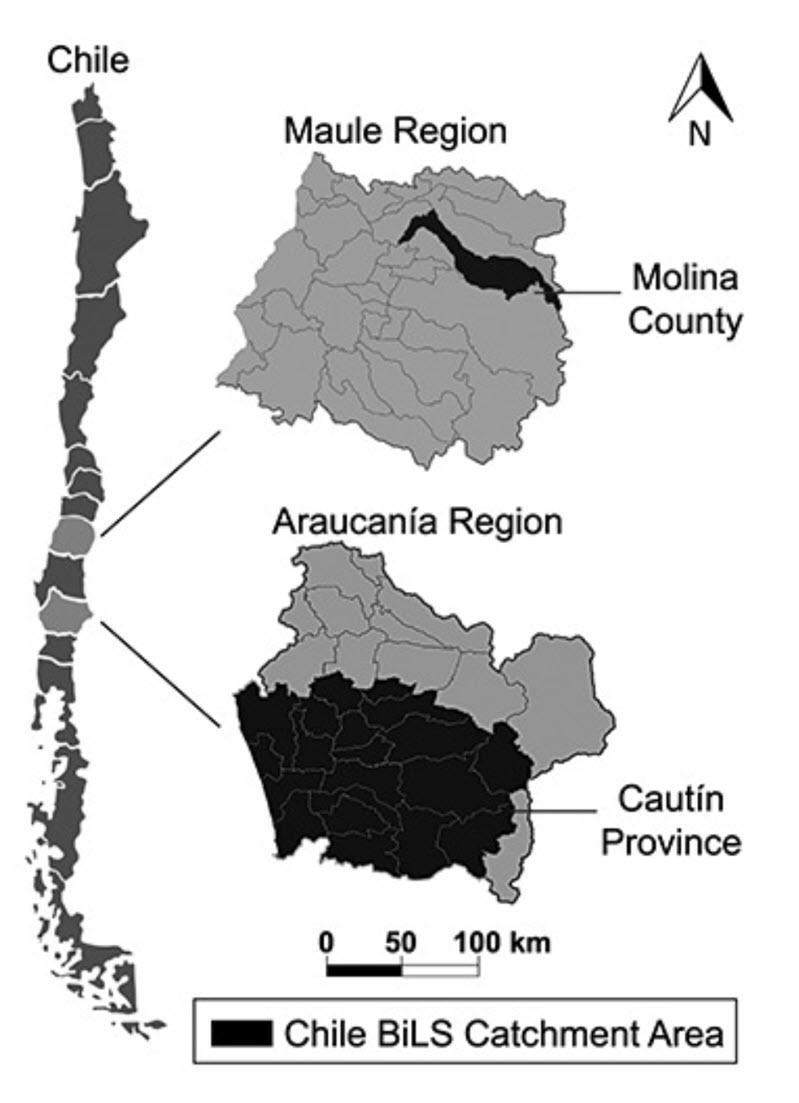Overview
Chile BiLS is a cohort of women with gallstones in Chile, which has among the highest rates of gallbladder cancer (GBC) in the world. GBC is one of the rare cancers that is more common in women than in men. Gallstones are the most important risk factor for gallbladder cancer, being found in upwards of 90% of cases, but most individuals with gallstones do not develop gallbladder cancer. Since many of the same factors that increase the risk of gallstones also increase the risk of gallbladder cancer, a critical question is "what drives the development of GBC in the context of gallstones?"
By providing prospective data taken among individuals with gallstones and extensive biologic sample collection, Chile BiLS offers the opportunity to answer this question. The primary aim of the study is to investigate risk factors for gallbladder dysplasia and cancer. Main risk factors of interest include chronic inflammation; aflatoxin; and obesity, diabetes, and metabolic syndrome. Secondary risk factors of interest include genomic variation, infections (e.g., S. Typhi, Helicobacter species), and environmental/occupational exposures (e.g., exposure to metals). A secondary aim is to explore whether and how associations with risk factors, e.g., BMI, diabetes, and metabolic syndrome, are mediated through inflammation. Recruitment began in January 2016, and 4,727 women from south-central Chile were enrolled by January 2019.
Participants were followed with study visits every other year through year four. Study visits included ultrasound, questionnaire, blood draw, and physical exam. Active follow-up continues through mid-2024.
Case-Control for the Chile BiLS Cohort
To enrich the Chile BiLS cohort, we have also added a case-control component. For this component, we are recruiting incident GBC cases and controls matched on age and sex. Recruitment for incident cases will continue through mid-2025. At the same time, we are recruiting prevalent GBC cases and controls who had surgery but not cancer from 2016–mid-2022 (when recruitment of incident cases began). The case-control component will provide additional tissues, post-surgical blood, and risk-factor data, facilitating research to elucidate the etiology of this rare cancer.
We also have data and samples from several pilot studies we conducted to gather the information needed to design Chile BiLS. The pilot work includes a small case-control study, a series of cholecystectomy patients with fully sampled gallbladders, and a sample of individuals from the general population.
Select Publications
Jackson SS, Van De Wyngard V, Pfeiffer RM...Koshiol J. Inflammatory profiles in Chilean Mapuche and non-Mapuche women with gallstones at risk of developing gallbladder cancer. Sci Rep 2021, doi: 10.1038/s41598-021-83300-2.
Koshiol J, Van De Wyngard V, McGee EE, et al. The Chile Biliary Longitudinal Study: A Gallstone Cohort. Am J Epidemiol 2021, doi: 10.1093/aje/kwaa199.
Find publications from the Chile BiLS study, including publications from the pilot studies.
Requests for Chile BiLS Data and Specimens
We encourage and promote external collaborations. Outside investigators should submit a request to the Chile BiLS Steering Committee for review and approval.
To request guidelines for application, please email the Chile BiLS coordinator.
For more information, contact Jill Koshiol, Ph.D.
Infections and Immunoepidemiology Branch - Research Areas
